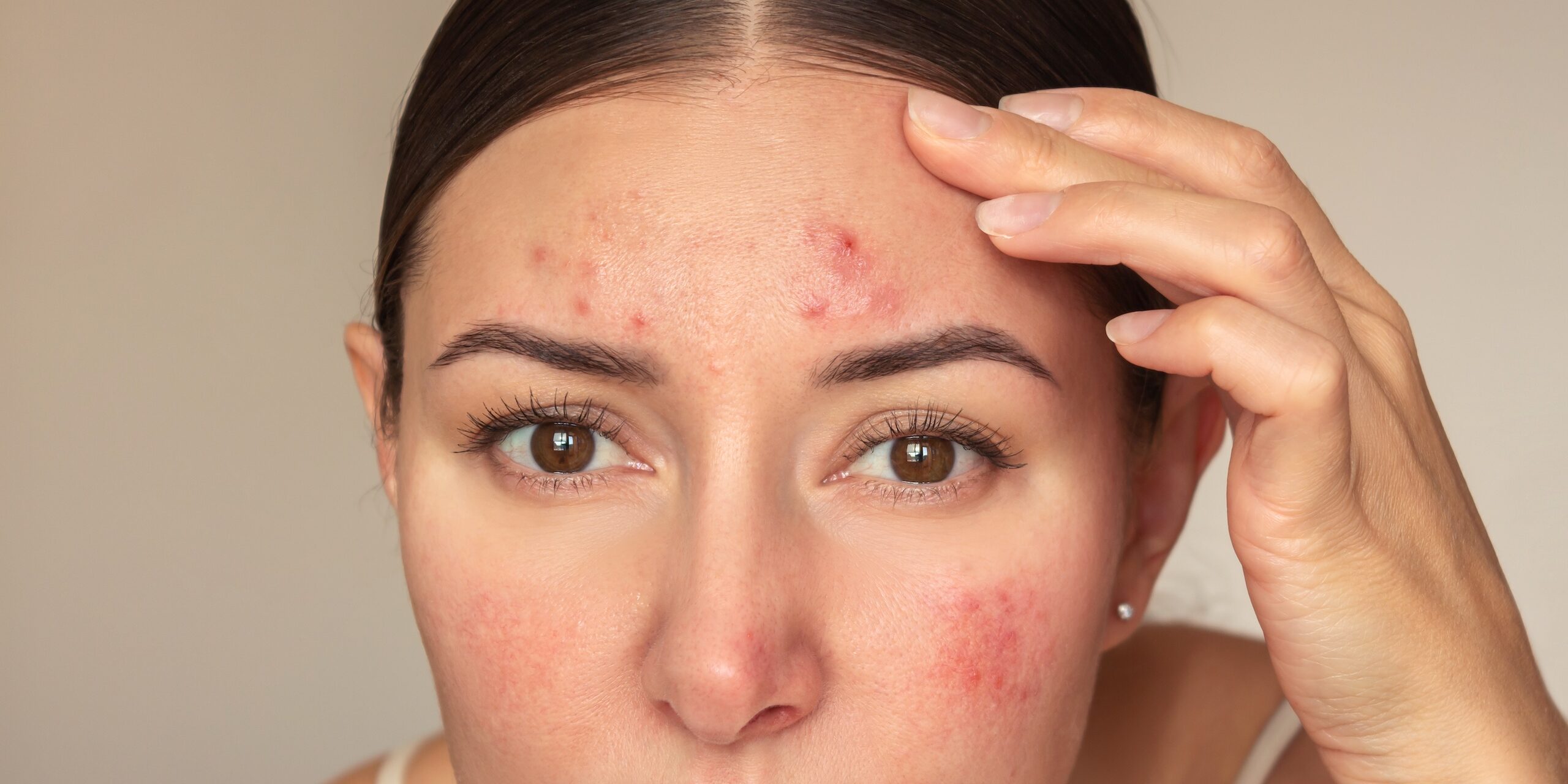When you’re stressed out, it shows on your skin.
We all face many types of stress in our lives – from the annoyance of sitting in traffic to the everyday pressures caused by work or relationships to major unpredictable events like the loss of a job or loved one. The weight of carrying around all that stress often manifests itself through physical symptoms, including negative impacts on your skin.
At The Derm, you will find the skin care expertise and support you need to address stress-related skin conditions like acne, eczema, rosacea, and more. Keep reading to learn more about the deep connection between your brain and your skin, along with lifestyle changes and skin care solutions that can help keep stressed-out skin healthy.
The science behind stress and skin
Your brain and your skin, which is your body’s largest organ, are intimately linked. So when you experience chronic stress, your skin quickly becomes a target.
Stress prompts your brain to produce and release certain hormones, including cortisol. Cortisol is known as the “stress hormone” for good reason. This hormone plays a key role in managing your body’s fight-or-flight response to stress. When it kicks in, your heart beats faster, your pupils dilate, and your muscles tremble.
Because your skin also has receptors for cortisol, your skin goes through multiple changes during and after times of stress, such as:
- Rapid paleness or blushing
- Increased inflammation
- Impaired wound healing
- More oil and sebum production
- Poor resistance to infection
Your brain’s reaction to stressful triggers also generates cytokines, proteins that power your immune system and help control inflammation in your body. Too many cytokines can lead to excess inflammation, leaving your skin in need of extra care.
How your skin reacts to stress
Stress is often a trigger for chronic skin conditions like acne, eczema, and rosacea, causing them to flare up more frequently. Stress also has a substantial impact on how your skin ages. Over time, cortisol and other stress-released hormones break down the collagen and elastin in your skin, accelerating the aging process and causing more fine lines and wrinkles.
To make matters worse, you might skimp on your skin care routine when you are stressed – aggravating new and existing skin issues even further.
Stress – triggered skin issues
Acne
Acne occurs when your hair follicles become clogged with oil, dead skin cells, and/or sebum (an oily, waxy substance produced by your body’s sebaceous glands that protects and hydrates the skin.) If the clogged follicle is close to the surface of your skin, it bulges outward, creating a whitehead. If the clogged follicle is under your skin, it turns dark, creating a blackhead.
Scientific research has found that all wounds, including acne, heal more slowly when a person is under stress. This slower healing means that pimples during a stress outbreak are likely to last longer, be more visible, and become more severe over time.
Eczema
Eczema, also called atopic dermatitis, is an inflammatory skin condition that can appear anywhere on your body and looks different from person to person. Some people get rough, leathery skin, while others develop red patches or raised bumps that may swell, ooze, or crust over. The most universal symptom of eczema is itchy skin.
Studies have shown that stress can activate itch nerve fibers in your skin, leading to more itching and scratching during eczema flare-ups. When cortisol is released in larger amounts, it also suppresses your immune system and increases inflammation throughout your body – often making eczema symptoms worse.
Rosacea
Rosacea is another inflammatory skin condition that causes redness on your face or other parts of your body. Different types of rosacea can also cause bumps, pimples, swelling, and dry skin. Common signs of rosacea include frequent blushing, visible blood vessels beneath your skin, and persistent redness that doesn’t go away.
Moments of stress can make anyone feel flushed – but rosacea is another matter. Stress is one of the most frequent causes of rosacea flare-ups, which can lead to extra redness, discomfort, and pain.
Stress management makes a difference
When chronic stress wreaks havoc on your skin, most people become even more stressed – and so the cycle continues.
No one can avoid stress completely, but there are lifestyle changes you can make to help manage stressful situations and protect the health of your skin.
- Exercise regularly. It’s good for your skin and rest of your body.
- Eat a nutritious diet. Certain foods like whole grains, avocados, nuts, berries, leafy greens, and even dark chocolate all have stress-lowering properties.
- Get enough sleep. Lack of sleep has a profound effect on both your physical and mental health. Aim for at least 7-8 hours of quality sleep per night.
- Take time to relax. Carve out time to do something relaxing that you enjoy, even if it’s only for a few minutes.
- Practice self-care. Breathing exercises, yoga, and meditation are all known to relieve stress.
Finally, never neglect your skin. You should always take good care of it, even when you are stressed – and that’s where The Derm comes in.
We have skin care solutions for stress
Whether it’s reviewing skin care products or scheduling a cosmetic procedure to heal and rejuvenate your skin, the skin care experts at The Derm are here to help. During your consultation, a board-certified dermatologist will examine your skin and create a customized treatment plan just for you.
To get started, schedule an appointment today at our Glenview or Park Ridge office. And don’t stress – better skin is on its way!







